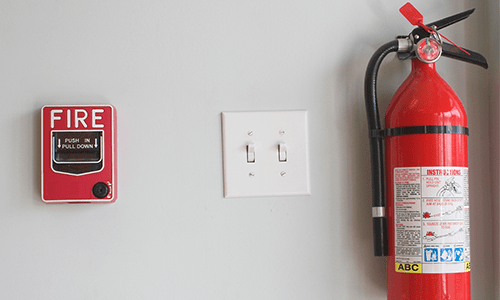As the summer months are winding down, TV commercials for school supplies abound and parents are overjoyed with soon-to-be quiet households. It truly is a wonderful time of the year – unless you work in property management. For property managers, this time of year is the most dreadful. If your association is on a January through December fiscal year, budget season starts in September. A budget is a crucial tool to effective management and a successfully running the association. As we near the end of the year, there are a few tips one can utilize to verify that an association stays within budget and anticipates concerns. If you have the right tools, you can certainly make your life less stressful and more productive.
All property managers know the annual budgeting process for an association is not an easy task. In order to create a balanced budget, managers must have intimate knowledge of annual operating costs. The annual operating costs are a key factor in determining the annual income requirement. Another factor to be determined, the amount of the reserve contribution. The final key factor in the budget review process is determining which capital improvement projects are to be done this budget year. One of the professional tools that a manager may consult while drafting the budget is a reserve study.
An important practice used when drafting the annual budget, is comparing the income and expense statements from previous years. This information will assist you in formulating a plan for the year to come by allowing you to examine previous historical trends of income and expense. This process is especially helpful with anticipated utility costs for the property. The anticipated utility and other budgetary factors will fluctuate with geographic location. For example, properties within the Chicago-land area have fluctuating utility costs. This is evident in the water and gas bills. These bills are based on the seasons as they can affect the extent to which the utilities are used. Using the trend information gathered from previous years, a property manager can safely estimate how much a property is expected to spend on utilities. Taking that number and allowing for a 10-15% increase for the monetary cushion will help ensure that the property is prepared to handle most cost fluctuations that the year may bring.
An important distinction must be made regarding the reserve study. The reserve study is not the same thing as the annual budget. An annual budget is approved at the annual meeting of the association and includes annual maintenance. The reserve study is meant to deal solely with major repairs and replacements projects.
A reserve study is a long-term budget-planning tool that identifies all the facility and common elements at the property and it provides an approximate timeline of life expectancy for all of these elements. Additionally, the reserve study provides budget projections for the anticipated cost of the element replacements over the entire term of the study, 20-30 years. The reserve study provides us an anticipated income requirement over the term of the study to fund all of the anticipated capital improvements. An independent consulting company generally prepares reserve studies for the associations. The reserve study can be costly, but it provides us the road map for financial planning and facility maintenance and repair over the long term. The majority of the reserve study companies are licensed professional engineers or architects. As property managers we are trained to rely on the expertise of trained professionals in matters where we need their expertise. Creation of a long term capital planning project to maintain an entire facility, and to create budgetary cost projections is best left to an expert.
Unfortunately, there are some associations that refuse to have a reserve study. Some of the consequences of not having a reserve study are emergency special assessments to fund emergent projects. Another consequence of not having a reserve study can be the failure to have a road map planning capital improvements and creating the method to fund them. The associations that have the reserve study are in a much better position to plan for and fund capital improvements and to obtain bank loans where necessary. There are many benefits to a reserve study and property managers should be encouraged to discuss this budget tool at initial budget planning session. The property managers are charged with educating board members and associations owners regarding the reserve study that will essentially save the board money and prepare the association in the best way possible to manage the property.
Over the years of being a licensed and certificate property manager, experience has taught me a few things:
- When you’re at the end of the budget year and you have a large cash surplus this may indicate that you did not perform all the budget maintenance and repairs for the year that were originally funded for the year’s budget.
- On the other hand, if you end up with ZERO dollars at the end of the year or a negative balance, you may have over spent the budget or there may have been some unanticipated repairs or costs.
- The budgeting process is basically a monthly process for the entire year. Property Managers are charged with monitoring the income and expenses and alerting the Board when there are short falls or overages.
- Our monthly monitoring of the income and expenses allows us to tailor the reserve contribution that’s in the budget.
With the change in seasons approaching, it is imperative to finish summer projects before the on-set of fall season. An important item at this point of the year is to remember to anticipate fall and winter annual maintenance items. If you live in an area that receives a winter snowfall, an important budget consideration is snow removal and salt supply. This means that evaluating the cost and effectiveness of past snow plow contractors, requesting proposals, and anticipating salt supply costs must have already taken place. Another example of a winter maintenance item is conducting service on boilers and air conditioning systems. Shut down service for air-conditioning systems is a must, especially if the summer was especially warm. In preparation for winter, start up service on all boilers will ensure adequate preparation for colder months. These kinds of services will also help these systems run efficiently throughout the year. A third winter maintenance expenditure that must be accounted for is conducting annual roof maintenance. The premise behind this expenditure is preparing your roof for the winter season. If you manage properties with flat roofs, inspecting all the parapet walls, termination bars, flashings, skylights and roof exhaust fans and roof drains should be done prior to the winter season. Another improvement to be considered would be the installation of gutter and downspout heat tapes to prevent ice damming. This maintenance is cost efficient and is expected to reduce the amount of water leak service calls during the winter months. We should keep in mind that repairing these types of problems may be difficult due to harsh weather conditions. These type of maintenance services will prolong the life of the roof and other named elements.
Another important practice that managers are charged with is physical inspections of the facilities. At the minimum quarterly inspections of the facilities are recommended. Bringing along the reserve study timeline during inspection, is an excellent tool for monitoring conditions of the various elements of the facility. Using this guideline allows us to identify easily the various elements of the facility as such making observing their current condition easy as well. We may find that some portions of the facilities listed in the Reserve report may not last as long as projected and other may last longer than projected. The key goal of these inspections and monitoring of the facility elements are to be familiar with them in real time enabling the manager to advise the Board to accelerate plans for certain elements where necessary.
In conclusion, as the dreadful budget season approaches, keep in mind some tips. A reserve study is necessary to prepare for major projects or replacements that are not part of annual maintenance costs. Staying within a budget and comparing projects to the approved budget is important in order to keep order and stay on a certain monetary path. A budget is meant to help managers and the Boards maintain the property by keeping up with maintenance and controlling costs. Effective budgets will help control all maintenance costs and ensure that we are doing the maintenance that is required yearly. A budget along with a reserve study will also eliminate special assessments, bank loans and negative cash flows at the end of the year for all the planned maintenance and projects. The budget and reserve study are tools that can be used in order to be cost efficient. In this day and age, we all know how important it is to save money. As the year comes to an end, keep in mind these tips and look to local CAI chapters on further budgetary recommendations. These tips will not only make your life less stressful, but it will make the association and property owners happier.





 Fred Schroeder
Fred Schroeder 


